Tabari-Cherer works with Plan International Ethiopia to implement the Women’s Voice and Leadership (WVL) program in Ethiopia, which is funded by the Government of Canada, as part of the Feminist International Assistance Policy.
Women’s Voice and Leadership is pioneering a new way to support women’s rights and gender equality, by directly providing grant funding and training to 98 Ethiopian women’s organizations.
Plan International programs are typically designed along with children and their families to fund various initiatives that support their needs, such as facilitating gender equality community workshops and enrolling girls in school. Partnering with other organizations is usually only one component of a program.
However, the entire WVL program is an innovative approach designed in collaboration with women's organizations to meet their own defined needs so that they can deliver their initiatives for women and communities.
In the spring of 2023, Tabari-Cherer met with staff from NEWA and two other key partner organizations supported by the project.
Donate
Lettycia's Story
Give Today
Learn more
LEADING
WOMEN
Words by: Jenny Bertrand
Reading time: 6 minutes

The last decade has been especially difficult for women’s organizations in Ethiopia.
Beginning in 2009, the Ethiopian government restricted not-for-profit organizations from carrying out human rights– or justice-based programs and advocacy work. This caused organizations to face significant challenges in receiving international funding.
As a result, work for gender equality came almost to a standstill.
“Many organizations lost members, and more than half were forced to close,” says Roshan Tabari-Cherer, a program manager with Plan International Canada.
The restrictions were finally lifted in 2019, but the COVID-19 pandemic began shortly after, and many organizations had to shift funds to meet people’s urgent needs.
One association that Plan International supports is the Network of Ethiopian Women’s Association (NEWA), a group that works to influence policy change and support gender equality. The group had to pivot its operations during those challenging years to help protect girls in conflict zones from gender-based violence.
“When someone is asking you for food, how can you focus on educating them about their rights?” asks Meseret Ali, program manager for NEWA in Addis Ababa, the capital city of Ethiopia.
Donate
Sharing and localizing power is the way of the future, and women’s organizations are leading the change
in Ethiopia.
Innovation that
‘Revitalizes’ Organizations
Hunger affects 10-year-old Lettycia’s life every day in Haiti. Read her story and find out how you can help her and millions of children who are hungry in Haiti.
Gift of Nutrition
Give a Gift of Hope: Basket by basket, this nutritious gift will deliver staple foods like beans, cooking oil and fortified cereals to families facing emergency levels of starvation.
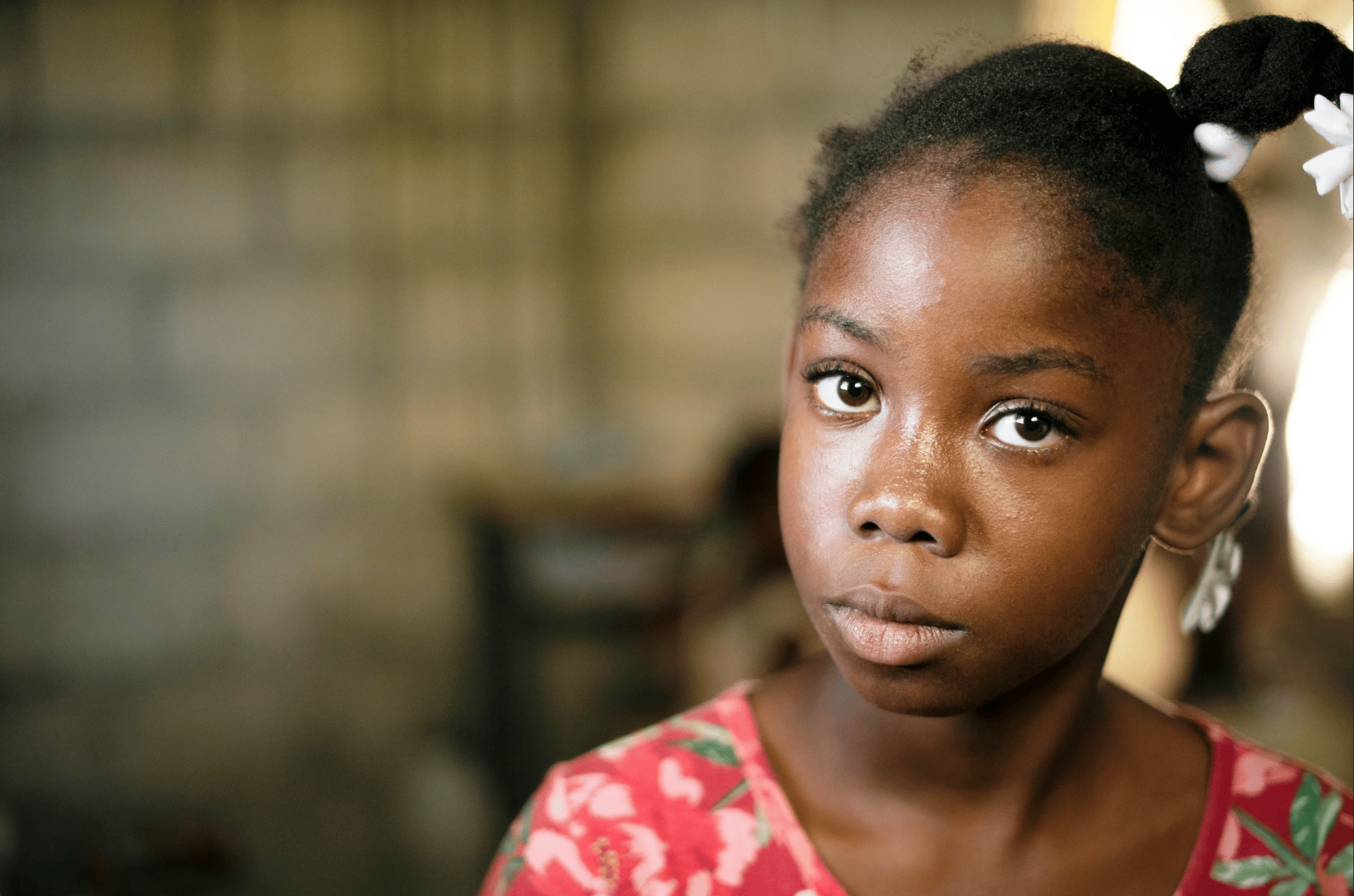
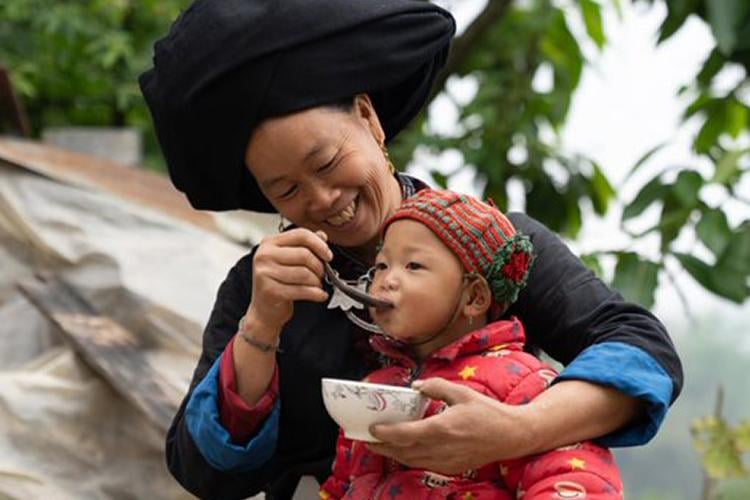
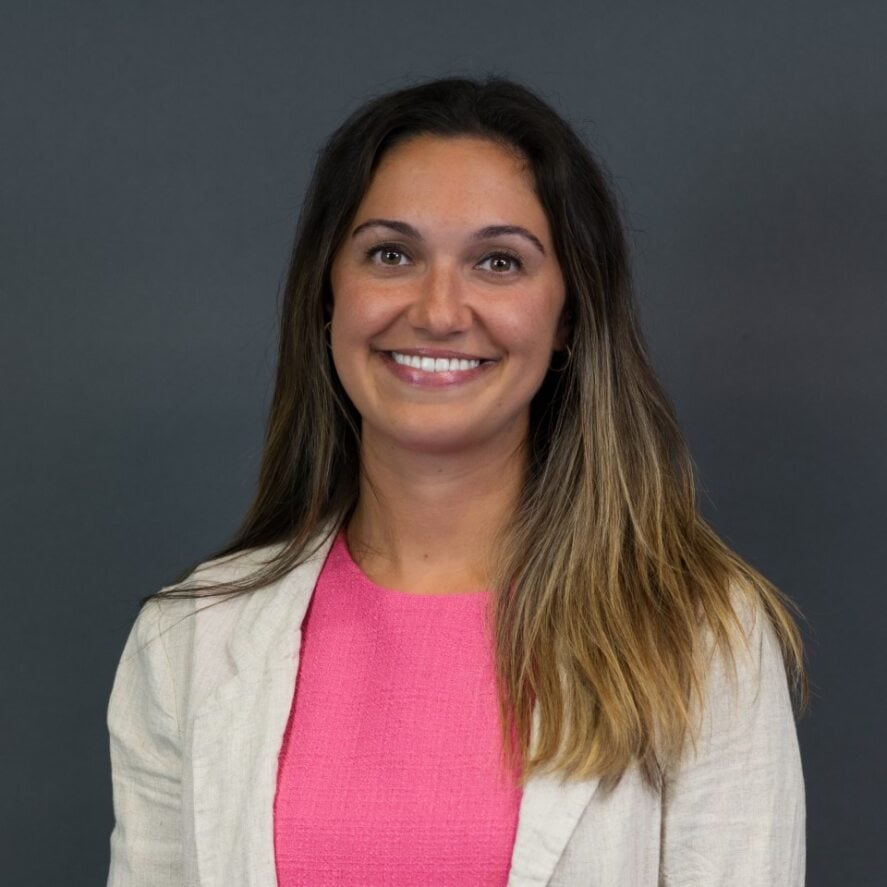
“
Everyone said this project came at a crucial time to rebuild. This project model of giving funding directly to other organizations allows them to implement activities as they see fit. They can define their own needs.”
- Roshan Tabari-Cherer,
program manager,
WVL program in Ethiopia
The 98 organizations range from larger, long-standing collectives to smaller start-ups. The Ethiopian Center for Development has worked to improve women’s economic standing for 20 years. It has a vocational training centre and has set up leadership training for women through its WVL grant. NEWA is using one of its grants to advocate the government to strengthen responses to gender-based violence.
Following the decade-long restrictions on NGOs, the Women’s Voice and Leadership project was the second grant NEWA received in 2019.
“It’s revitalized our organization so we can continue the women’s rights movement,” says Ali.
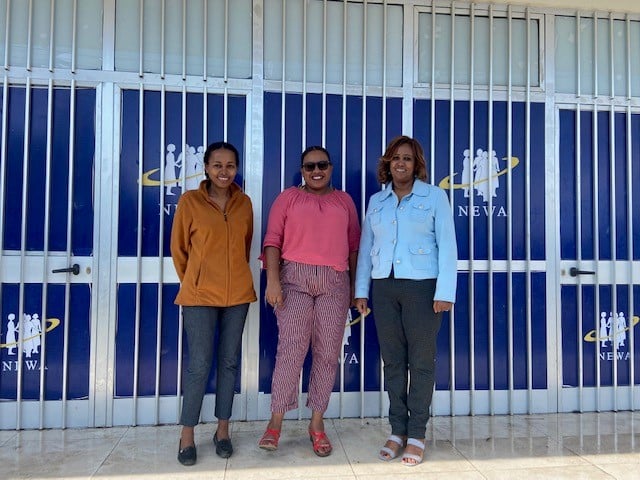
Saba Gebremedhin (right), Meseret Ali (centre) and Tirfe Emshaw of the Network of Ethiopian Women’s Association.
3 ways the WVL program supports women's organizations:
By strengthening leadership and management skills
By providing access to funding that is flexible and responsive to needs
By coordinating advocacy work that helps move forward the women's rights movement in Ethiopia
•
•
•
Learn about
the My Choice
My Life project,
helping to
end child, early and forced
marriages in Ethiopia
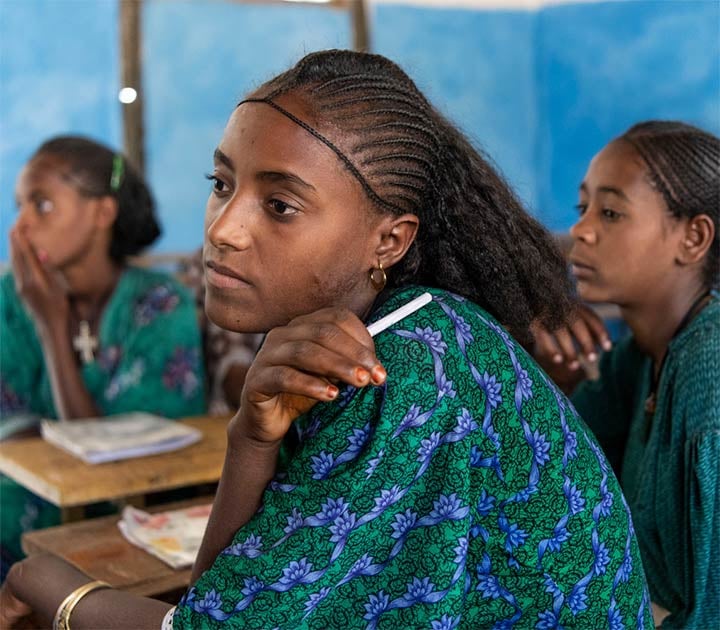
The Union of Ethiopian Women and Children Associations wanted to run a program that supports women and girls who have been displaced by conflict. But the organization couldn’t do it without financial support and technical training.
The union applied to participate in the Women’s Voice and Leadership program to not only implement their programs but to also to further strengthen their organizations.
How the Program Works

More than 8 million women and girls need protection services as violence and hunger escalate.
5/5
A prolonged drought has pushed millions
of people close to starvation.
4/5
20 million people have been affected. More than 4 million people are displaced.
3/5
The Amhara region declared a state of emergency in August 2023. Roadblocks and travel risks affect organizations’ ability to provide life-saving aid and services to those in need.
2/5
Since 2020, violence between the military and militias in the Tigray and Amhara regions has increased dramatically.


facts about the
crisis in ethiopia
1/5
Source: https://www.cfr.org/global-conflict-tracker/conflict/conflict-ethiopia
Source: https://www.unfpa.org/ethiopia-conflict-climate-shocks
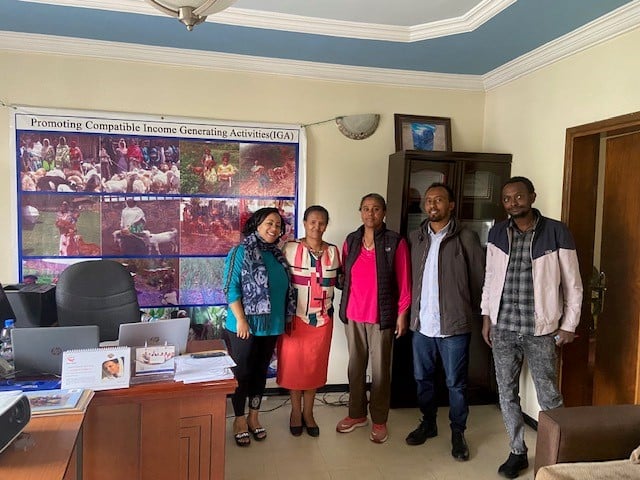
“I appreciate that the project’s approach to funding is flexible and based on our self-assessment of our strengths and limitations,” says Azeb Kelemework, the union’s executive director.
The Women’s Voice and Leadership project helped the union by providing $184,000 in funding so far for its programs and has helped contribute to:
1) Raising awareness and implementing programs about unpaid and domestic work
2) Providing inclusive support for internally displaced people in Ethiopia, especially women and girls affected by conflict
Azeb Kelemework (second from left) and her colleagues at the Union
of Ethiopian Women and Children Associations.
Yemudaye is the name of one of the types of grants funded by the Women’s Voice and Leadership program.
“It means to bring confidence, security and a boost to small and new organizations,” says Kassahun Getahun of Plan International Ethiopia.
Women living in Ethiopia should have the resources and prerogative to influence the systems that affect their lives. But that hasn’t been the reality. Development plans and decisions about how resources are allocated have often been made by organizations that are far removed from the people who are affected by those decisions daily.
Yemudaye – confidence and security – embodies how the Women’s Voice and Leadership program is breaking free from historical ways of working so Ethiopians can create change in Ethiopia as they see fit. The program respects local knowledge and autonomy. It shares decision-making power so that people in Ethiopia can lead developments in their own communities.
Yemudaye, or
Bringing Confidence
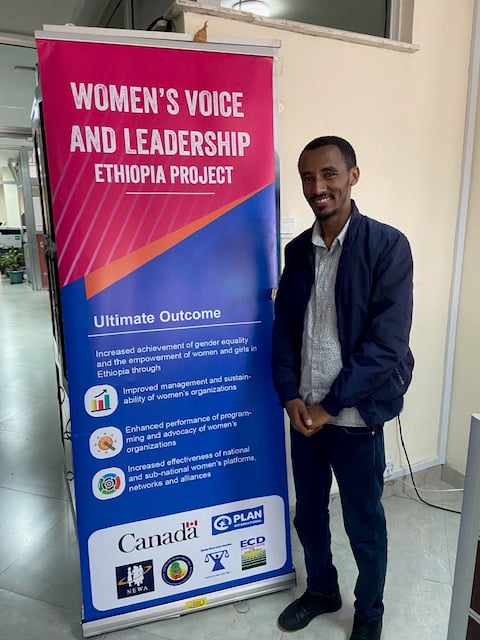
“
I believe the project is improving the sustainability and effectiveness of women’s organizations. The project’s flexible approach helps women’s organizations innovate to reach millions of people and bring about gender equality.”
- Kassahun Getahun,
Plan International Ethiopia
Kassahun Getahun (left), Grant Coordinator, Plan International Ethiopia.
Eden Asrat (right), Project Officer, Plan International Ethiopia.
The Women’s Voice and Leadership program has one year left.
Here are some ways you can help the WVL program,
and other projects like it, go further:
“Girls want to be change makers,” says Eden Asrat, one of Getahun’s colleagues at Plan International Ethiopia. Her work focuses on engaging young people through youth leadership skills training and connecting girls with leaders of women's organizations.
“This project leverages the collective knowledge of young women leaders and expands their experiences,” says Asrat. She believes that tapping into young and diverse people’s capabilities, as well as the newly formed partnerships among organizations, will address inequality in the region.
Saba Gebremedhin, NEWA’s executive director, says it will take time and cooperation to change perspectives on gender equality and feminism in the communities where the organization works.
“Moving forward, women-led organizations need to be involved in the design of projects and decision-making processes in order to work in complex settings and build trust with girls in the communities,” says Gebremedhin.
Here, an African proverb rings true for her: “If you want to go fast, go alone. If you want to go far, go together.”
Together Toward the Future
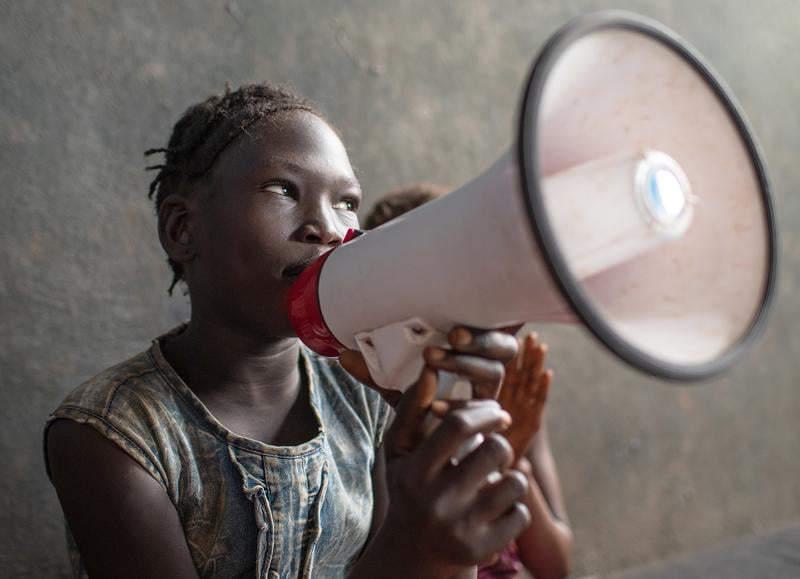
Girl Power Gift of Hope
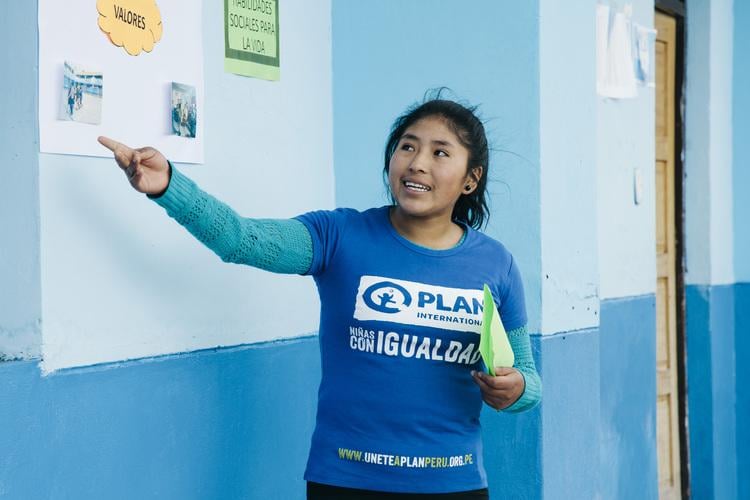
Leadership Training
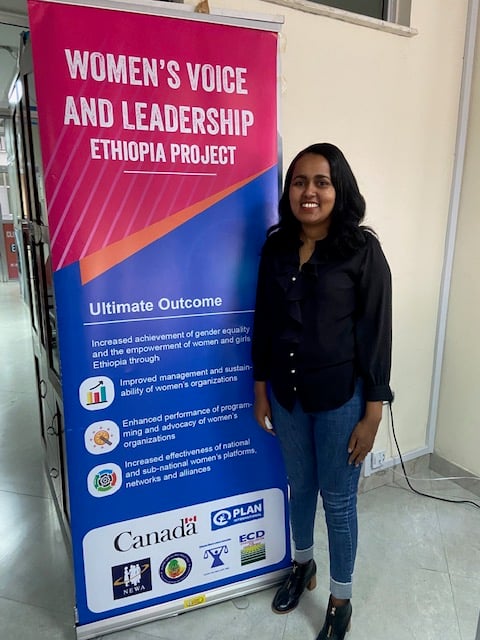
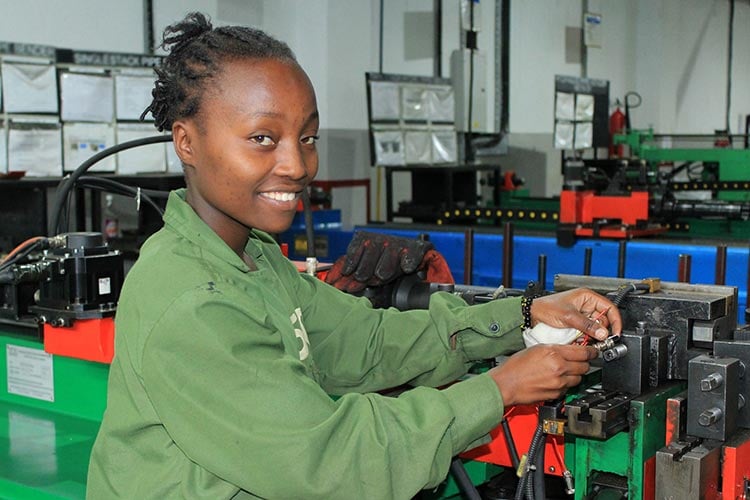
Because I am a Girl

The small island nation of Haiti is mighty. The country and its people have stood strong against strife, stemming back to its early days of colonization. But recently, climate-related disasters, epidemics, gang violence and civil unrest have generated a series of overlapping crises.
In 2010, a magnitude-7.0 earthquake hit the capital, Port-au-Prince, causing unprecedented damage to the city and affecting a third of the country. While people were still recovering and rebuilding from that, Hurricane Matthew swept the island in 2016, leaving 200,000 families homeless and destroying crops just before harvest season.
The COVID-19 pandemic and the ensuing lockdowns in 2020 further exacerbated income loss and food insecurity in Haiti. A year later, the assassination of President Jovenel Moïse escalated the violence and civil unrest that were already brewing due to political mistrust. Inflation soared.
And five weeks after Moïse’s assassination, in August 2021, a magnitude-7.2 earthquake devastated the western side of the Caribbean country.
These compounded events have made Haiti one of the hungriest places on Earth. High food costs, crops damaged due to climate disasters and continuous hits to the economy and social infrastructure have made it nearly impossible for children and families to keep food on their plates.
Sharing and localizing power is
the way of the future, and women’s organizations are leading the change in Ethiopia.
Dispatch from Haiti
Through all of this, the people of Haiti have demonstrated immense resilience – and, as Plan International Canada program manager Valériane Schwall witnessed, deep pride in their culture while calling for the return of a peaceful and safe Haiti.
In April, Schwall spent four weeks in Haiti on deployment from the Canadian office, working alongside colleagues from around the world, including El Salvador, Ecuador, Rwanda, the Netherlands and England. She sat down with us to share her experience:
The Situation in Haiti
Give a Gift of Hope: Basket by basket, this nutritious gift will deliver staple foods like beans, cooking oil and fortified cereals to families facing emergency levels of starvation.
Give Today
Hunger affects 10-year-old Lettycia’s life every day in Haiti. Read her story and find out how you can help her and millions of children who are hungry in Haiti.

Lettycia's Story
This Nutritious Gift
Learn more


Roshan Tabari-Cherer
Program Manager, Plan International Canada
Plan International Ethiopia staff with leaders of women's organizations at the Women Deliver 2023 conference in Rwanda.
•
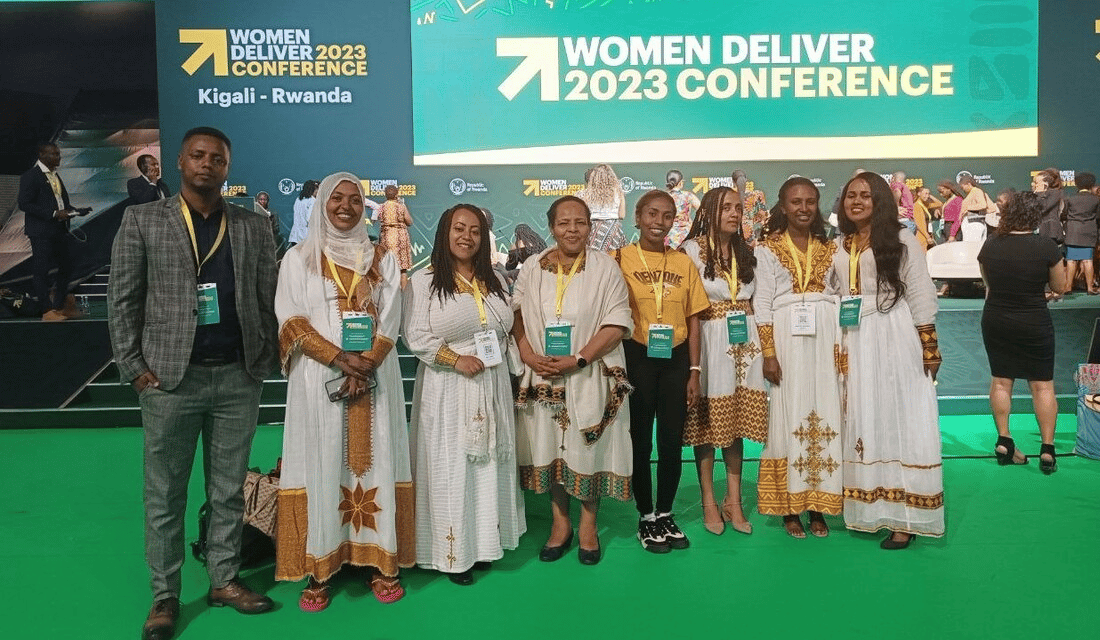

Roshan Tabari-Cherer
Program Manager, Plan International Canada


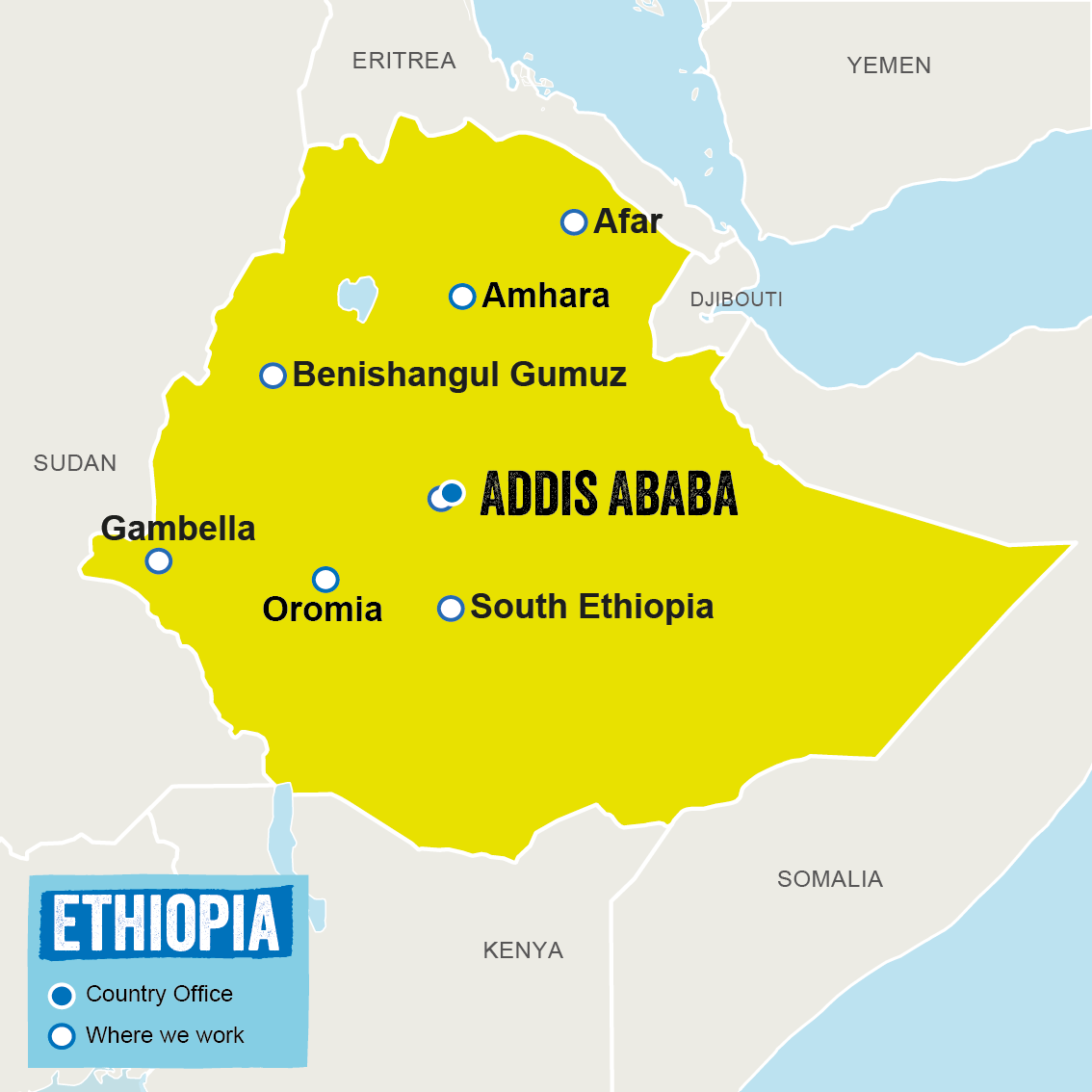
By providing access to funding that is flexible and responsive to needs
•